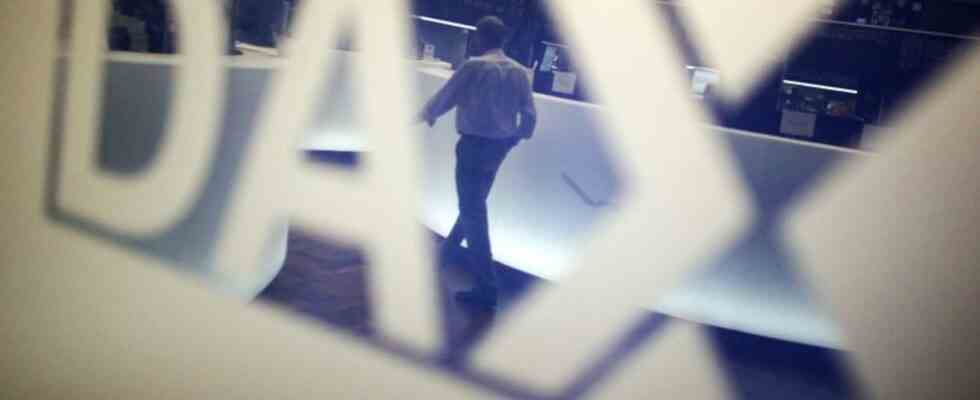Frankfurt Stock Exchange
War in Ukraine pushes Dax below 13,700 points
The Dax is the most important stock index in Germany. Photo: Fredrik von Erichsen/dpa
© dpa-infocom GmbH
The Dax accelerated its descent on Thursday in view of the escalating Russian war against Ukraine. After a brief stabilization as a result of a friendly start on the US stock markets, the leading German index quickly gave up its small recovery plus and dropped below 13,700 points.
The Dax accelerated its descent on Thursday in view of the escalating Russian war against Ukraine. After a brief stabilization as a result of a friendly start on the US stock markets, the leading German index quickly gave up its small recovery plus and dropped below 13,700 points.
With a discount of 2.16 percent to 13,698.40 points, the stock market barometer ended trading just slightly above its daily low. The MDax lost 2.47 percent to 30,332.88 points. It looked similarly bleak across Europe, with the eurozone leading index EuroStoxx 50 falling by 2.06 percent to 3741.78 points. In the US, the Wall Street index Dow Jones Industrial lost 0.4 percent at the end of trading in Europe. The technology-heavy Nasdaq exchanges lost around one percent.
According to Emmanuel Macron, the worst is yet to come for Ukraine. As it was said in Paris after a conversation between the French President and his Russian counterpart Vladimir Putin, his clear goal is to bring the entire Eastern European country under his control. The faint hope that there was at times due to the renewed talks between Russia and Ukraine about a ceasefire has now given way to great skepticism.
The reporting season faded into the background as the situation in Ukraine continued to deteriorate. Nevertheless, the Merck share was the only one in the Dax that was able to keep up. It increased by 1.3 percent in a severely clouded market environment and benefited above all from the pharmaceutical and specialty chemicals manufacturer’s optimistic business outlook.
The RWE share brought up the rear in the leading index with minus 8.6 percent, while in the MDax the Uniper paper fell by 17.6 percent and held the red lantern there. The war in Eastern Europe has serious negative consequences for the business relationships of many companies in Russia and Ukraine. Uniper, for example, is a major importer of natural gas from Russia and has also co-financed the Nord Stream 2 gas pipeline, which is now on the verge of collapse, with almost one billion euros.
With a minus of a little more than eight percent, the Lufthansa share was also very weak. After two years of losses due to the pandemic, the airline is preparing for further difficult times due to the war and thus also in view of the rapidly increasing fuel prices. ProSiebenSat.1 and Evonik, which also presented figures, were also very weak.
In contrast, the shares of Kion and Ströer were able to keep up very well at 4.3 percent and 2.3 percent respectively. The forklift manufacturer Kion benefited from high demand for logistics vehicles last year and is confident about 2022. The outdoor advertiser Ströer also reported strong figures and, thanks to this momentum, expects above-average growth for the current first quarter.
The euro fell to 1.1050 US dollars in the evening. The European Central Bank set the reference rate at 1.1076 (Wednesday: 1.1106) dollars. The dollar thus cost 0.9029 (0.9004) euros.
On the bond market, the current yield rose from minus 0.17 percent on the previous day to minus 0.08 percent. The Rex pension index fell by 0.45 percent to 143.00 points. The Bund future rose by 0.05 percent to 169.16 points in the evening.

